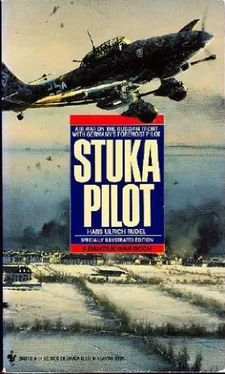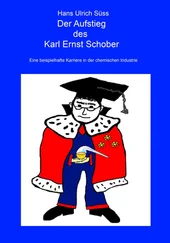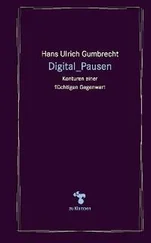After the interview Niermann and I are driven in a jeep to a suburb of the town where an uninhabited villa is placed at our disposal. A sentry at the gate shows us that we are not entirely free. A car comes out to fetch us to the officers’ mess for meals. The news of our arrival has soon got round among the people of Erlangen and the sentry has trouble in coping with our numerous visitors. When he is not afraid of being surprised by a superior he says to us: “Ich nix sehen.”
So we spent five days at Erlanger. Our colleagues who have remained behind at Kitzingen we do not see again; there are no complications to detain them.
On the 14th May Captain Ross, the I.O. of the Air Army, appears at the villa. He speaks good German and brings us a message from General Wyland regretting that so far no progress has been made towards the recovery of my belongings, but that orders have just come through that we are to proceed immediately to England for interrogation. With a short stopoff at Wiesbaden, we are delivered to an interrogation camp near London. Quarters and food are austere, our treatment by English officers is correct. The old captain to whose care we are “entrusted” is in civilian life a patent lawyer in London. He pays us a daily visit of inspection and one day sees my Golden Oak Leaves on the table. He looks at it thoughtfully, wags his head and mutters, almost with awe: “How many lives can that have cost!”
When I explain to him that I earned it in Russia he leaves us, considerably relieved.
In the course of the day I am often visited by English and also by American intelligence officers who are variously inquisitive. I soon perceive that we have contrary ideas. This is not surprising seeing that I have flown most of my operational flights with aircraft of very inferior speed and my experience is therefore different from that of the allies who are inclined to exaggerate the importance of every extra m.p.h., if only as a guarantee of safety. They can hardly believe my total of over 2,500 sorties with such a slow aircraft, nor are they at all interested to learn the lesson of my experience as they see no life insurance in it. They boast of their rockets which I already know about and which can be fired from the fastest aircraft; they do not like to be told that their accuracy is small in comparison with my cannon. I do not particularly mind these interrogations; my successes have not been gained by any technical secrets. So our talks are little more than a discussion of aviation and the war which has just ended. These island Britishers do not conceal their respect for the enemy’s achievement, their attitude is one of sportsmanlike fairness which we appreciate. We are out in the open air for three quarters of an hour every day and prowl up and down behind the barbed wire. For the rest of the time we read and forge post-war plans.
After about a fortnight we are sent north and in terned in a normal American P.O.W. camp. There are many thousand prisoners in this camp. The food is a bare minimum and some of our comrades who have been here for some time are weak from emaciation. My stump gives me trouble and has to be operated on; the camp M.O. refuses to perform the operation on the ground that I have flown with one leg and he is not interested in what happens to my stump. It is swollen and inflamed and I suffer acute pain. The camp authorities could not make a better propaganda among the thousands of German soldiers for their former officers. A good many of our guards know Germany; they are emigrants who left after 1933 and speak German like ourselves. The negroes are good-natured and obliging except when they have been drinking.
Three weeks later I am entrained for Southampton with Niermann and the majority of the more seriously wounded cases. We are crowded onto the deck of a Kaiser freighter. When twenty four hours pass without our being given any food and we suspect that this will go on till we reach Cherbourg, because the American crew intend to sell our rations to the French black market, a party of Russian front veterans force an entry into the store-room and take the distribution into their own hands. The ship’s crew pull very long faces when they discover the raid much later.
The drive through Cherbourg to our new camp near Carentan is anything but pleasant as the French civilian population greet even seriously wounded soldiers by pelting them with stones. We cannot help remembering the really comfortable life the French civilians of ten led in Germany. Many of them were sensible enough to appreciate that while they were living in comfort we were holding back the Soviets in the East. There will be an awakening, too, for those who today throw stones.
The conditions in the new camp are very much the same as in England. Here also an operation is at first refused me. I cannot look forward to being released, if only because of my rank. One day I am taken to the aerodrome at Cherbourg, and at first I believe I am to be handed over to Ivan. That would be something for the Soviets, to have Field Marshal Schörner and myself as prizes from the war on the ground and in the air! The compass points to 300 degrees, so our course is set for England. Why? We land some twenty miles inland on the aerodrome at Tangmere, the R.A.F. formation leaders’ school. Here I learn that Group Captain Bader [1] Read Reach for the Sky , the story of Douglas Bader’s triumphant courage that overcame the peacetime loss of both his legs so thor oughly that when his country was attacked, he became an R.A.F. Wing Commander fighting the Battle of Britain. Another great book in the Bantam War Book Series.
has effected my removal. Bader is the most popular airman in the R.A.F. He was shot down during the war and flew with two artificial legs. He had learnt that I was interned in the camp at Carentan. He had himself been a prisoner of war in Germany and had made several attempts to escape. He can tell a different story from the inveterate agitators who seek by every means to brand us Germans as barbarians.
This time in England is a rest cure for me after the P.O.W. camps. Here I discover again for the first time that there is still a respect for the enemy’s achievement, a chivalry which should come naturally to every officer in the service of every country in the world.
Bader sends to London for the man who made his artificial limbs with an order to make one for me. I decline this generous offer because I cannot pay for it. I lost all I had in the East and I do not yet know what may happen in the future. At any rate it will not be possible to pay him back in sterling. Group Captain Bader is almost offended when I refuse to accept his kindness and am worried about payment. He brings the man down with him, and he makes a plaster of Paris cast. The man returns a few days later and tells me the stump must be swollen internally as it is thicker at the bottom than at the top; therefore an operation is necessary before he can complete the artificial leg.
Some days after this an enquiry comes from the Americans, saying that I have “only been lent” and must now be returned. My rest cure is nearly over.
On one of my last days at Tangmere I have an illuminating discussion with the R.A.F. boys attending a course at the school. One of them—not an Englishman—hoping no doubt to anger or intimidate me, asks me what I suppose the Russians would do with me if I had now to return to my home in Silesia where I belong.
“I think the Russians are clever enough,” I reply, “to make use of my experience. In the field of combating tanks alone, which must play a part in any future war, my instruction may prove disadvantageous for the enemy. I am credited with over five hundred tanks destroyed, and assuming that in the next few years I were to train five or six hundred pilots each of whom destroyed at least a hundred tanks, you can reckon out for yourself how many tanks the enemy’s armament industry would have to replace on my account.”
Читать дальше












